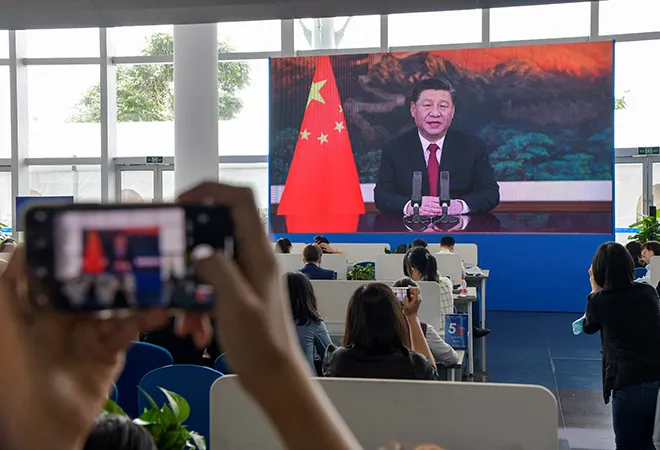
In a bid to address the growing backlash on account of poor working conditions of workers in the private sector, China has issued its most comprehensive warning yet against the “996” work culture using real court disputes.
On August 28, the Supreme People’s Court of China and Ministry of Human Resources and Social Security published a joint statement on labour violations and irrational over time, often labeled as 996—working 6 days a week from 9 am to 9 pm. It condemned this practice as illegal. The statement read, “Legally, workers have the right to corresponding compensation and rest times or holidays.” It further added, “Obeying the national regime for working hours is the obligation of employers. Overtime can easily lead to labour disputes, impact the worker-employer relationship and social stability.” Although China’s labour law allows for a maximum of three hours of overtime per day (which makes a 12-hour shift legal when accounting for a one-hour lunch break), it also caps overtime work at 36 hours per month, which makes the 996 work model illegal.
The Supreme People’s Court of China and Ministry of Human Resources and Social Security published a joint statement on labour violations and irrational over time, often labeled as 996—working 6 days a week from 9 am to 9 pm.
The statement lists the review of 10 court cases in which labour laws were violated. In one case, a tech firm asked employees to sign agreements to give up overtime pay, which the court ruled unlawful. In another case, an employee at a media firm died at the workplace after being forced to log long hours. The court ruled the death work-related and asked the company to pay the victim’s family about 400,000 yuan ($61,710). The statement also mentioned a precedent that puts the burden of proof to deny paying overtime on the employer, in case the employee presents his/her evidence of working overtime. Plaintiffs received compensation in all the cases, including but not limited to the tech industry. This will encourage more and more people to use the court system to go after tech companies for rightful compensation.
996 work culture has been highly popular among China’s tech companies and start-ups. Tech tycoon Jack Ma, the founder of Alibaba Group, is a staunch supporter of the strenuous work schedule. In 2019, he partly attributed tech companies’ success to it and called it “a huge blessing that many companies and employees don’t have the opportunity we have”. Richard Liu, the founder of JD.com, said people who frittered away their days “are no brothers of mine”. Zhou Hongyi, CEO of cybersecurity giant Qihoo360, also defended the punishing work schedule, saying that work-life balance is unattainable.
Tech tycoon Jack Ma, the founder of Alibaba Group, is a staunch supporter of the strenuous work schedule.
The dark side of working for China’s booming technology industry first came under the spotlight in 2019 when an activist group created the project "996.ICU”—a reference to the place where such hours take engineers: The intensive care unit—on Github, where critics listed examples of unreasonable overtime work and blacklisted companies accused of engaging in the practice. It was widely reported that QQ Browser and WeChat (products of Tencent), UC Browser (product of Alibaba), 360 Browser (product of Qihoo 360), and many other Chromium-based Chinese browsers blocked the 996.ICU repository on GitHub, describing it as “an illegal and fraudulent site.” Outrage over the “996” was reignited in December 2020, after a Pinduoduo worker died earlier this year for what seemed to be work-related reasons. The case sparked an investigation into the company by the Shanghai authorities and criticism from China’s state broadcaster CCTV. The death of another Pinduoduo worker within a month sparked widespread hue and cry on Chinese social media. People believe that the pandemic has made the working conditions worse in a tighter market.
The intensive care unit—on Github, where critics listed examples of unreasonable overtime work and blacklisted companies accused of engaging in the practice.
Cracking down on the brutal 996 culture is a part of the Chinese Communist Party’s broader populist campaign to rein in large tech companies, ensure labour protection and reduce inequality. Following the introduction of three child policy and harsh crackdown on the ed-tech sector, takedown on 996 work culture can be seen as a systematic approach to address the pressing issue of the declining birth rate as it takes a toll on the personal lives of the middle class.
The views expressed above belong to the author(s). ORF research and analyses now available on Telegram! Click here to access our curated content — blogs, longforms and interviews.




 PREV
PREV


